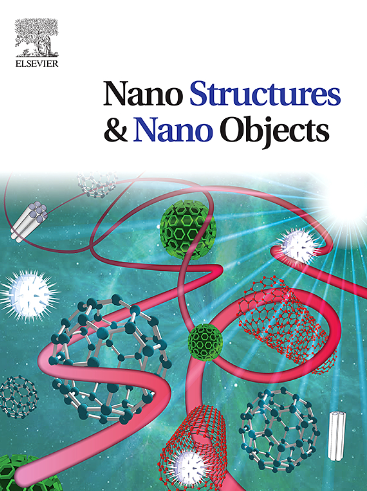Functionalization of ZnO nanoparticles and their antimicrobial activity: In vitro
IF 5.45
Q1 Physics and Astronomy
引用次数: 0
Abstract
The precipitation process was used to synthesize ZnO nanoparticles (ZnO NPs), which were functionalized with fifteen amino acids and three surfactants. X-ray diffraction (XRD), field emission scanning microscopy (FESEM) with energy-dispersive X-ray spectroscopy, Fourier transformed infrared spectroscopy (FTIR), Raman spectroscopy, and UV-Vis spectroscopy were used to evaluate the synthesized and functionalized ZnO NPs. The characterization of the produced ZnO using XRD and FESEM revealed the development of a nanoscale hexagonal crystal, and the spectroscopic methods validated the presence of IR functional groups, Raman phase mode, and UV optical absorbance. The ZnO samples that had been functionalized demonstrated deformation in a surface morphology while maintaining chemical stability. The functionalization procedure effectively increases the inhibitory efficacy of NPs against (Accession No. MZ435922) and (Accession No. MZ435863), as demonstrated by the antifungal activity. The findings of current work provide a foundation for improving the biological activity of NPs against fungi by modifying them with active medium and boosting their anti-microorganism and antioxidant activity.氧化锌纳米粒子的功能化及其抗菌活性:体外
采用沉淀法合成了氧化锌纳米颗粒(ZnO NPs),并用 15 种氨基酸和 3 种表面活性剂对其进行了功能化。利用 X 射线衍射 (XRD)、场发射扫描显微镜 (FESEM) 与能量色散 X 射线光谱、傅立叶变换红外光谱 (FTIR)、拉曼光谱和紫外可见光谱来评估合成和功能化的 ZnO NPs。利用 XRD 和 FESEM 对所制备的氧化锌进行表征,发现其形成了纳米级六方晶体,而光谱方法则验证了红外官能团、拉曼相模式和紫外光吸光度的存在。经过官能化的氧化锌样品在保持化学稳定性的同时,表面形态也发生了变形。从抗真菌活性来看,功能化过程有效地提高了纳米粒子对(登录号:MZ435922)和(登录号:MZ435863)的抑制效果。本研究的发现为通过活性介质修饰 NPs 提高其抗微生物和抗氧化活性,从而改善其抗真菌的生物活性奠定了基础。
本文章由计算机程序翻译,如有差异,请以英文原文为准。
求助全文
约1分钟内获得全文
求助全文
来源期刊

Nano-Structures & Nano-Objects
Physics and Astronomy-Condensed Matter Physics
CiteScore
9.20
自引率
0.00%
发文量
60
审稿时长
22 days
期刊介绍:
Nano-Structures & Nano-Objects is a new journal devoted to all aspects of the synthesis and the properties of this new flourishing domain. The journal is devoted to novel architectures at the nano-level with an emphasis on new synthesis and characterization methods. The journal is focused on the objects rather than on their applications. However, the research for new applications of original nano-structures & nano-objects in various fields such as nano-electronics, energy conversion, catalysis, drug delivery and nano-medicine is also welcome. The scope of Nano-Structures & Nano-Objects involves: -Metal and alloy nanoparticles with complex nanostructures such as shape control, core-shell and dumbells -Oxide nanoparticles and nanostructures, with complex oxide/metal, oxide/surface and oxide /organic interfaces -Inorganic semi-conducting nanoparticles (quantum dots) with an emphasis on new phases, structures, shapes and complexity -Nanostructures involving molecular inorganic species such as nanoparticles of coordination compounds, molecular magnets, spin transition nanoparticles etc. or organic nano-objects, in particular for molecular electronics -Nanostructured materials such as nano-MOFs and nano-zeolites -Hetero-junctions between molecules and nano-objects, between different nano-objects & nanostructures or between nano-objects & nanostructures and surfaces -Methods of characterization specific of the nano size or adapted for the nano size such as X-ray and neutron scattering, light scattering, NMR, Raman, Plasmonics, near field microscopies, various TEM and SEM techniques, magnetic studies, etc .
 求助内容:
求助内容: 应助结果提醒方式:
应助结果提醒方式:


